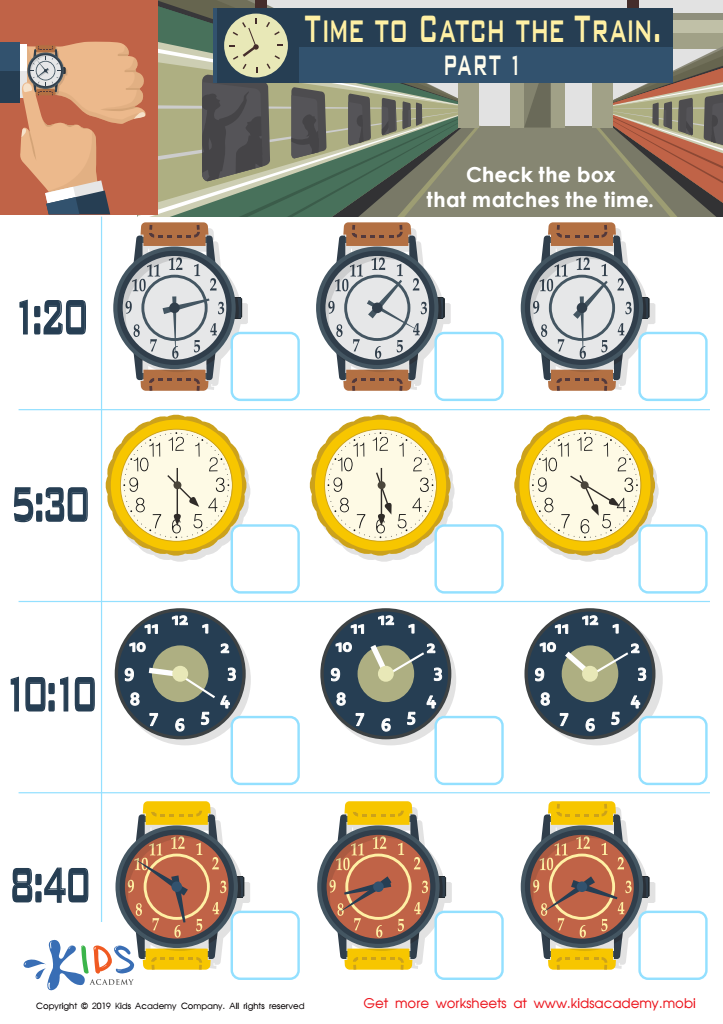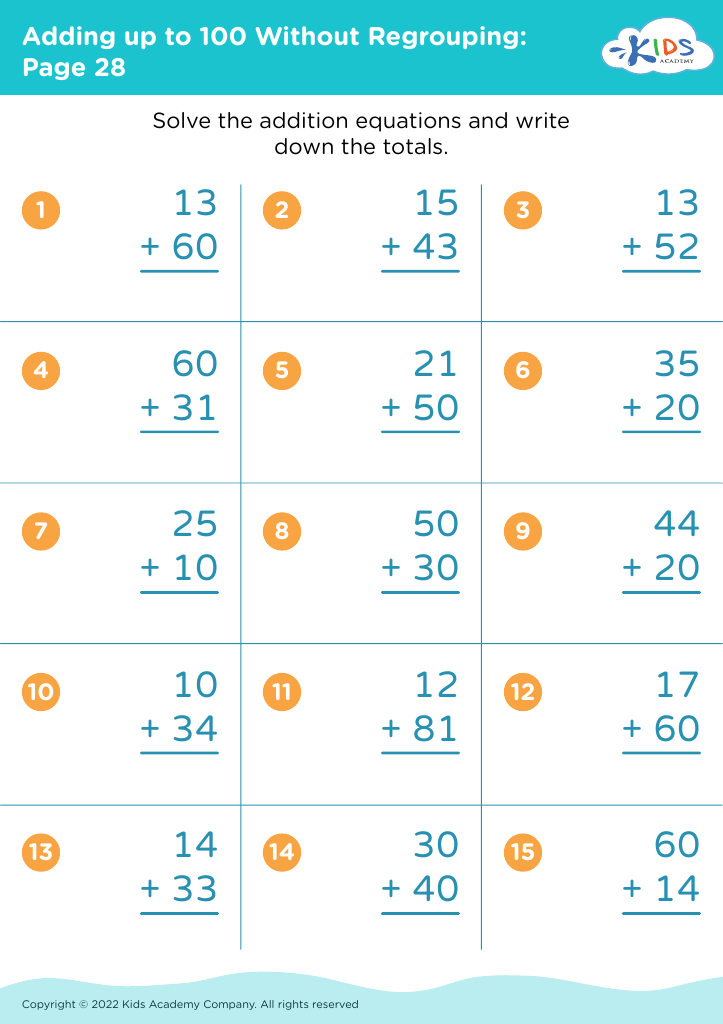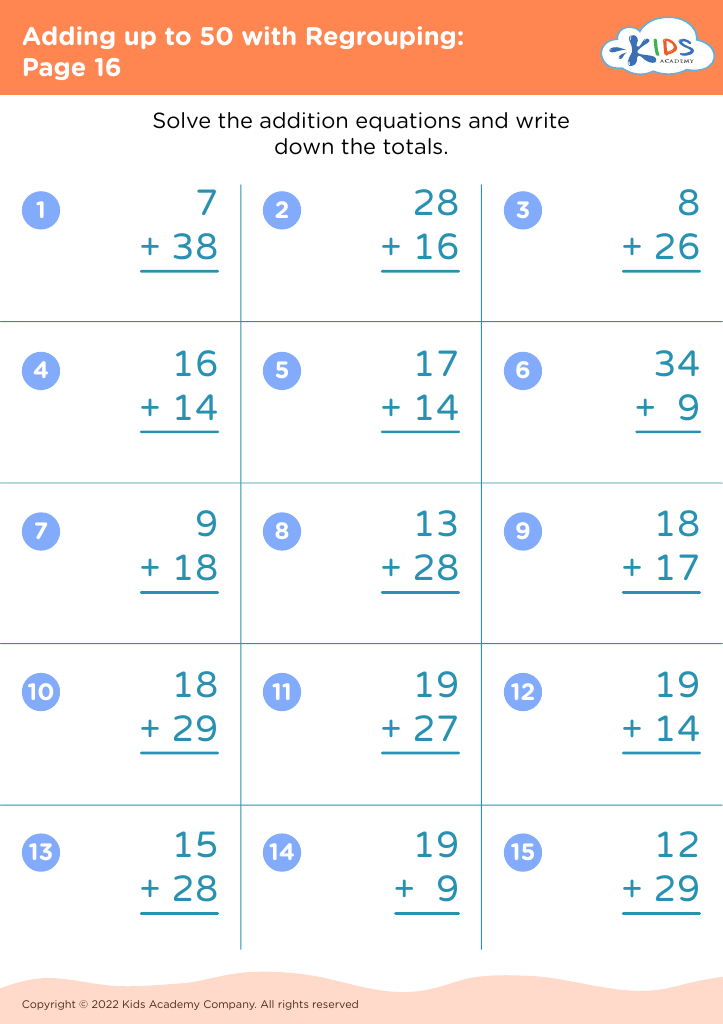Critical thinking development Math Worksheets for Ages 5-9
4 filtered results
-
From - To
Enhance your child's cognitive skills with our engaging Critical Thinking Development Math Worksheets, specially designed for ages 5-9. These worksheets offer fun and interactive activities that promote logical reasoning, problem-solving, and analytical thinking in young learners. Each worksheet is tailored to build a strong foundation in mathematics while encouraging creativity and critical analysis. Ideal for home or school use, our resources help children tackle challenges independently, develop confidence, and enjoy the learning process. Explore the wide range of exercises, from puzzles to word problems, that stimulate your child's mind and make math an enjoyable adventure. Start nurturing critical thinkers today!


Time to Catch the Train Part 1 Worksheet
Critical thinking development in mathematics for children ages 5-9 is essential for several reasons. At this age, children are forming foundational cognitive skills that will influence their future learning. Teaching critical thinking in math encourages young learners to analyze problems, recognize patterns, and make logical connections, which are vital skills not just in mathematics, but in everyday life.
Engaging in critical thinking helps children learn to approach problems systematically. Rather than memorizing formulas or procedures, they learn to understand concepts deeply. This not only boosts their confidence in math but also turns them into independent thinkers who can tackle challenges creatively. Furthermore, critical thinking in math promotes perseverance, as children learn to experiment with different solutions and learn from their mistakes.
For parents and teachers, nurturing critical thinking in math cultivates a positive attitude towards learning. It fosters curiosity, encouraging children to ask questions and seek out answers. Ultimately, developing these skills early on lays the groundwork for success in later academic pursuits and in real-world situations, preparing children to make informed decisions and think analytically throughout their lives. Thus, investing time in critical thinking development during these formative years is invaluable.



 Assign to My Students
Assign to My Students





.jpg)


.jpg)












